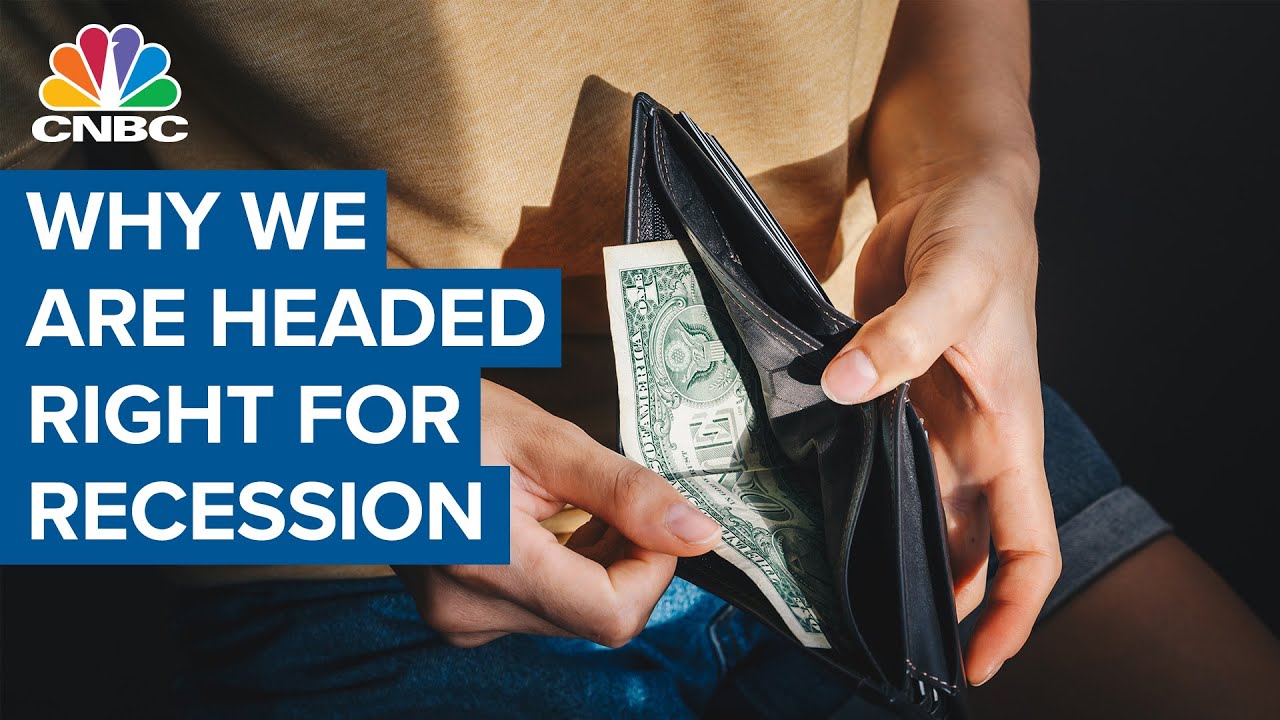Morgan Stanley's Jim Lacamp: We Are Steam Rolling To Recession
Unleash Your Creative Genius with MuseMind: Your AI-Powered Content Creation Copilot. Try now! 🚀
The Federal Reserve's stance on inflation has been a topic of concern for many market participants. If they decide to hike interest rates without signaling that they are done with their aggressive approach, what could happen to the markets? To shed some light on this matter, we have invited Jim from Morgan Lacampy Wealth Management to share his expectations and how it could affect your portfolio.
The Fed's Past Mistakes and the Sticky Inflation Problem
Jim highlights that the Fed is well aware of the mistakes it has made in the past. Instances like Arthur Burns quitting raising rates too early and the similar situation with Paul Volcker serve as cautionary tales for the Fed. They understand that they cannot merely half-heartedly tackle inflation; they must completely eradicate it before halting rate hikes.
However, the current economic environment poses challenges for the Fed. Leading economic indicators are pointing downhill, and regional banks are facing difficulties. It is not an ideal situation to raise rates, but the problem of inflation remains stubborn. The Fed finds itself in a tough spot, having created a box with excessive money printing and loose monetary conditions.
A Quarter-Point Hike with Conditional Pause
Given the circumstances, Jim predicts that the Fed will opt for a quarter-point rate hike. However, this decision may be followed by a conditional pause that depends on inflation readings throughout the summer. Additionally, the Fed needs to consider the impact of their previous rate hikes on the economy, as not all of it has fully materialized yet.
In this challenging situation, there are concerns about other issues, particularly related to local and regional banks. The uncertainty adds to the complexity of the situation, requiring everyone to remain cautious.
The Economy's Resilience and the Stock Market's Performance
Looking at the past twelve months, there have been signs indicating a slowdown in the economy. However, the job market remains resilient, and the economy is not in a severe recession. But how long will this play out? Is the economy strong enough for the Fed to raise rates without causing a collapse?
Jim acknowledges that both the stock market and the economy have shown unexpected resilience. Despite the warning signs in the data, such as inverted yield curves and declining leading indicators, the market and the economy have held up better than anticipated. However, it's essential to scrutinize the data and recognize that past recessions have coincided with certain patterns in the stock market.
Historical evidence indicates that stock markets typically recover only after entering a recession. Therefore, caution is warranted. While technical indicators may look favorable at the moment, it's crucial to remain open to the possibility that there are underlying reasons driving the market's movements that we may not see yet.
The Impact of Liquidity and Lending Standards
It's also worth considering the impact of liquidity and lending standards on the market. Jim acknowledges that the first quarter of the year saw the Fed tightening and adding liquidity simultaneously. While it's unclear how this may have affected the market, it's possible that there are other driving forces behind its movements.
However, when examining the data sets, there is a consistent narrative suggesting an impending recession. Coupled with tightening lending standards and predictions of a significant economic slowdown from senior loan officers, it becomes difficult to argue against the possibility of entering a recession.
In conclusion, the Fed finds itself grappling with the challenge of inflation while facing a less favorable economic climate. Their decisions on interest rates have significant implications for the markets. The economy and stock market have shown resilience, but it's important to remain vigilant. As investors, we must keep an open mind and closely monitor these developments to navigate the potential impact on our portfolios.

Related Recaps
- 🔥 SMASH CON LA MUERTA YA NO PIERDE, FULL GUIAS VAN A SALIR XD, ES UN PICK FLEXIBLE | Dota 2 ✅
- The Legend of Zelda: Tears of the Kingdom Review
- Hay más muertos Con AMLO que con Calderón | PROGRAMA COMPLETO | 12/02/23
- Mandrill Mayhem FIRST RIDE & Review - World Of JUMANJI Chessington World Of Adventures
- IRON MAN's REAL ORIGIN STORY